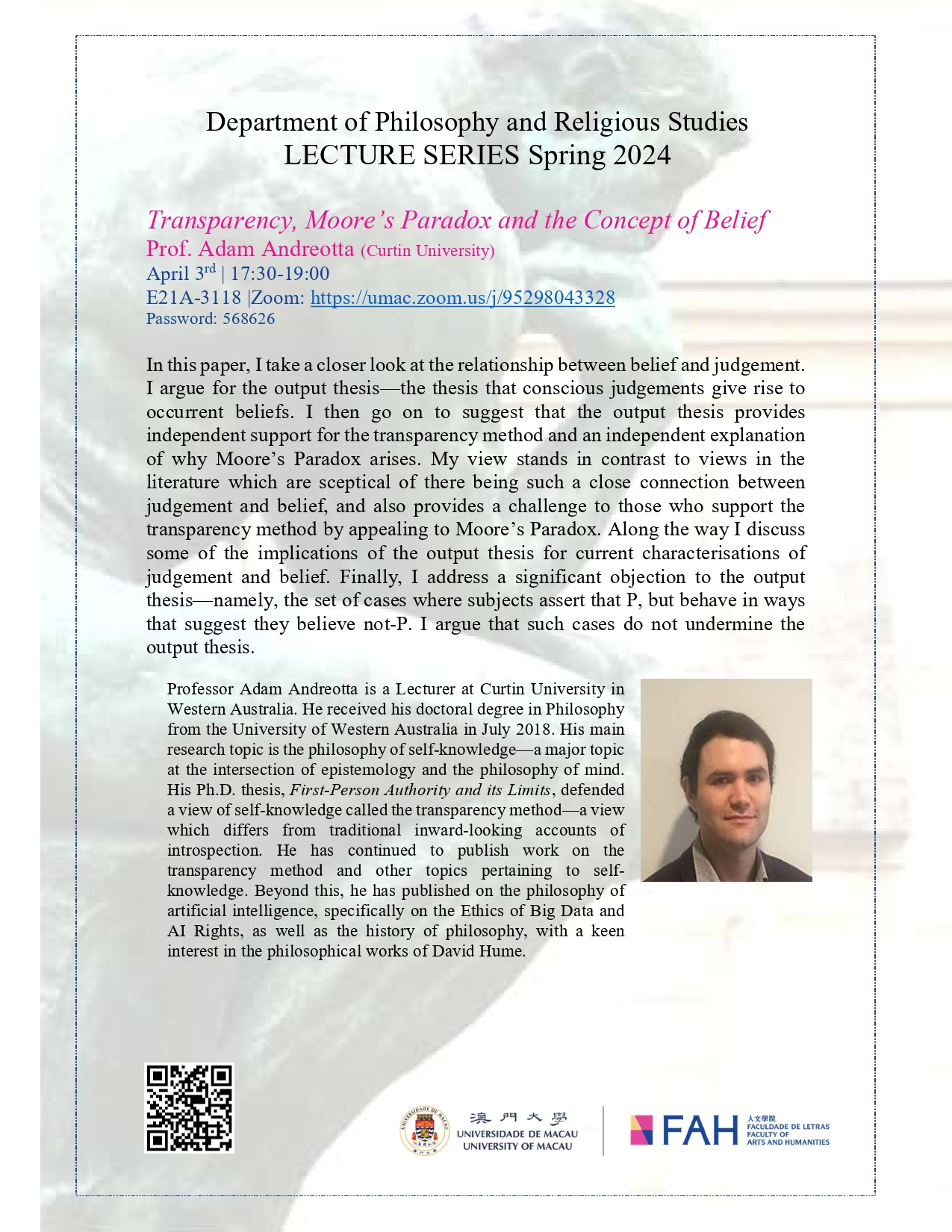

FAH/DPHIL Lecture Series – “Transparency, Moore’s Paradox and the Concept of Belief ” by Prof. Adam Andreotta, Curtin University, Australia
2024-04-03 @ 5:30 pm ~ 7:00 pm
Zoom: https://umac.zoom.us/j/95298043328
Password: 568626
Abstract
In this paper, I take a closer look at the relationship between belief and judgement. I argue for the output thesis—the thesis that conscious judgements give rise to occurrent beliefs. I then go on to suggest that the output thesis provides independent support for the transparency method and an independent explanation of why Moore’s Paradox arises. My view stands in contrast to views in the literature which are sceptical of there being such a close connection between judgement and belief, and also provides a challenge to those who support the transparency method by appealing to Moore’s Paradox. Along the way I discuss some of the implications of the output thesis for current characterisations of judgement and belief. Finally, I address a significant objection to the output thesis—namely, the set of cases where subjects assert that P, but behave in ways that suggest they believe not-P. I argue that such cases do not undermine the output thesis.
Bio
Professor Adam Andreotta is a Lecturer at Curtin University in Western Australia. He received his doctoral degree in Philosophy from the University of Western Australia in July 2018. His main research topic is the philosophy of self-knowledge—a major topic at the intersection of epistemology and the philosophy of mind. His Ph.D. thesis, First-Person Authority and its Limits, defended a view of self-knowledge called the transparency method—a view which differs from traditional inward-looking accounts of introspection. He has continued to publish work on the transparency method and other topics pertaining to self-knowledge. Beyond this, he has published on the philosophy of artificial intelligence, specifically on the Ethics of Big Data and AI Rights, as well as the history of philosophy, with a keen interest in the philosophical works of David Hume.

